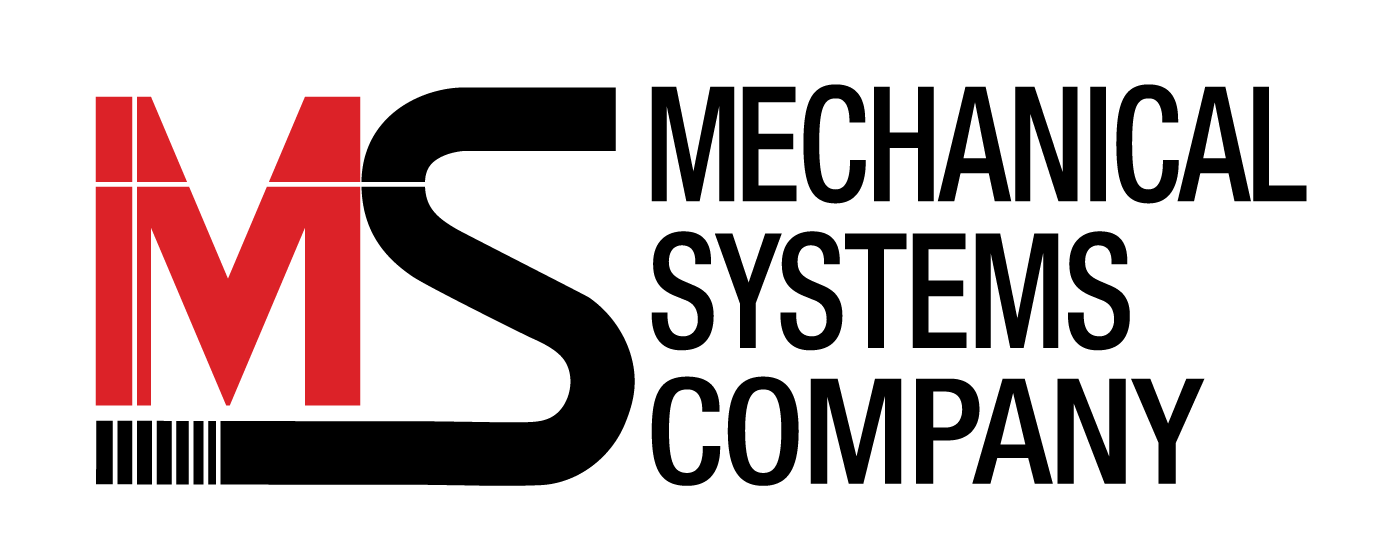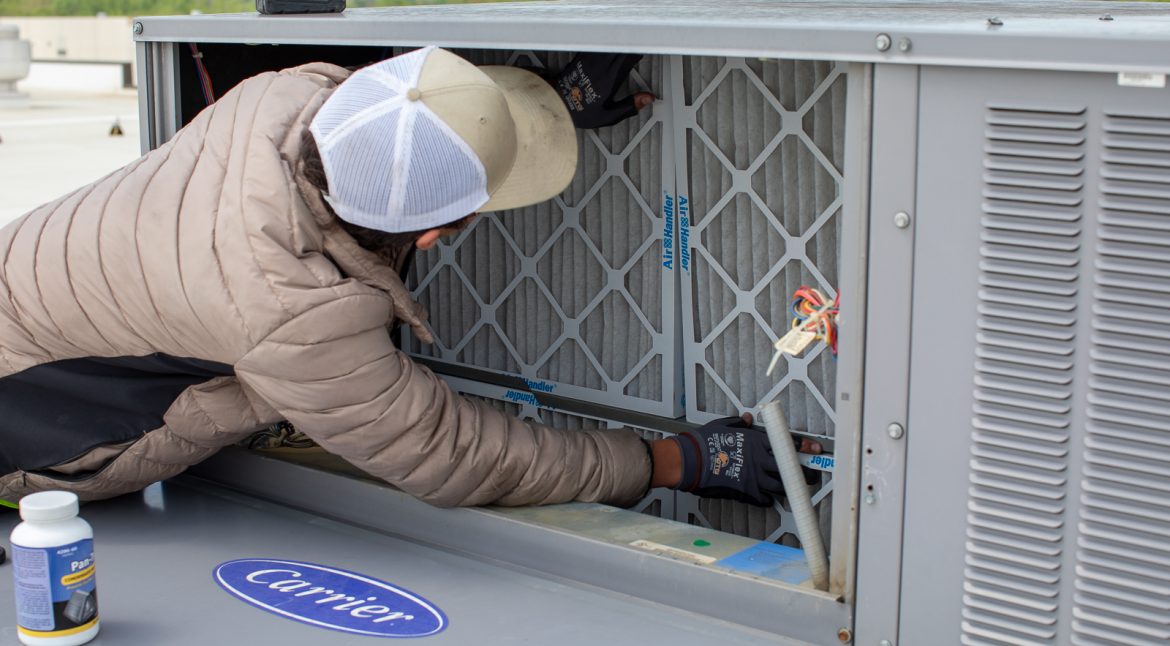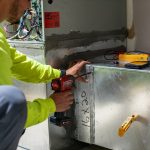Maintaining a well-functioning industrial HVAC system is critical for keeping operations running smoothly and without interruption. While we often focus on common issues like dust and mold, there’s another significant factor that can affect your HVAC system’s performance and your building’s air quality: pollen.
As the seasons change, pollen levels fluctuate, leading to various challenges for HVAC systems. Understanding how pollen can affect your HVAC system is important. By taking preventative measures, you can improve the air quality indoors and avoid any potential problems that may arise.
Understanding Pollen and Its Impact on Air Quality
What is Pollen?
Pollen is a fine, powdery substance produced by plants as part of their reproductive process. These microscopic grains are released from the male parts of flowers and are transported by wind, insects or other animals to fertilize the female parts of plants. While essential for plant reproduction, pollen can be a significant nuisance for industrial HVAC systems, particularly during peak pollen seasons when its concentration in the air is highest.
How Pollen Enters Your HVAC System
Pollen can infiltrate your HVAC system through various pathways, making it challenging to maintain a healthy indoor environment. Understanding these entry points is the first step in mitigating its impact on your HVAC system.
- Air Intake Vents: Air intake vents are essential for drawing fresh air into your HVAC system. However, they can also serve as a direct entry point for pollen, especially if they are located near flowering plants or trees.
- Open Windows and Doors: During pleasant weather, it’s common to open windows and doors to let in fresh air. Unfortunately, this also allows pollen to enter your facility, and the HVAC system can easily draw it in.
- Poorly Sealed Ductwork: Gaps or leaks in the ductwork can allow pollen to infiltrate the HVAC system. Unsealed ducts not only reduce system efficiency but also provide an easy path for it to circulate throughout your building.
Effects of Pollen on Your HVAC System
Clogged Air Filters
One of the most immediate and noticeable effects of pollen on your HVAC system is clogged air filters. When pollen clogs air filters, it significantly restricts the airflow through the system. This means your HVAC system has to work harder to push air through, reducing its efficiency. Clogged filters can cause your energy bills to rise as the HVAC unit strains to maintain the desired temperature in your facility.
Dirty Coils and Blower Fans
Pollen that bypasses or accumulates beyond the air filter can settle on critical components like coils and blower fans, leading to several issues. Dirty coils are less effective at heat exchange, which is essential for both heating and cooling processes. This inefficiency can cause your HVAC system to run longer cycles, increasing wear and tear. Blower fans coated with pollen and other debris can become unbalanced, leading to mechanical strain and possible failure.
Preventative Maintenance Tips
Regular Air Filter Replacement
Keeping your air filters clean is the most effective way to prevent allergens from causing issues in your HVAC system. High-efficiency particulate air (HEPA) filters and pleated filters are designed to capture smaller particles, including pollen, more effectively than standard filters. During peak seasons, it’s advisable to check and replace your air filters every 1-2 months. Regular inspections can help you stay ahead of any potential clogging.
Routine HVAC System Cleaning and Maintenance
Regular cleaning and professional maintenance are essential for keeping your HVAC system running smoothly and efficiently. Hiring professionals to clean your ductwork can help remove accumulated pollen and other debris, improving airflow and air quality.
Industrial HVAC experts recommend cleaning your ducts every 3-5 years, or more often if you have allergies. Ensuring that the coils and blower fans are free from pollen buildup can enhance the efficiency of your system. Regular maintenance visits from a qualified technician can keep these components in top condition.
Sealing Ducts and Ensuring Proper Ventilation
Inspect your ductwork for any gaps or leaks that could allow pollen to infiltrate. Sealing these leaks with appropriate materials can prevent it and other contaminants from entering the system. Proper ventilation is key to reducing pollen levels indoors. Ensure that your facility has adequate ventilation systems in place, such as exhaust fans in kitchens (if applicable) and bathrooms, to help manage indoor air quality.
Reducing Pollen Impact
Taking a few extra steps can further reduce the impact of pollen on your HVAC system and indoor air quality. Portable air purifiers with HEPA filters can help capture it and other allergens in specific rooms, providing an additional layer of protection. Additionally, frequent cleaning of surfaces, especially those near entry points like windows and doors, can reduce the amount of pollen that enters your HVAC system.
Benefits of Preventative HVAC Maintenance
Enhanced System Efficiency
Managing pollen effectively ensures that your industrial HVAC system runs at its optimal efficiency. A clean and well-maintained HVAC system doesn’t have to work as hard to circulate air. This reduced workload translates into lower energy consumption and, consequently, lower utility bills.
When pollen and other debris are kept out of the system, the wear and tear on components like filters, coils and blower fans are minimized. This can extend the lifespan of your HVAC system, delaying the need for costly replacements.
Improved Indoor Air Quality
Effective pollen management directly impacts the quality of the air you breathe indoors, contributing to a healthier and more comfortable working environment. Reducing pollen levels indoors can alleviate allergy symptoms and breathing issues for sensitive individuals. With less dust on surfaces, a fresher smell and a more comfortable atmosphere, you’ll notice fewer sneezing fits, less congestion and a general improvement in well-being.
Peace of Mind
Knowing that your HVAC system is protected from pollen and running smoothly gives you a sense of security and comfort. Regular maintenance and proactive measures ensure that your HVAC system performs reliably, especially during peak seasons. You can count on your system to keep your facility at a comfortable temperature without unexpected breakdowns.
Preventative measures and regular maintenance can help you avoid emergency repairs and unexpected expenses. By addressing potential issues early, you can save money and stress in the long run.
Managing allergens in your HVAC system is not just about preventing allergies; it’s about maintaining a healthy, efficient and cost-effective work environment. By implementing the strategies discussed, you can have a well-functioning HVAC system and help ensure the air you breathe is clean and safe.
For comprehensive industrial HVAC maintenance, expert advice on things like pollen mitigation and more, contact Mechanical Systems Company today and take the first step towards a healthier workspace.



